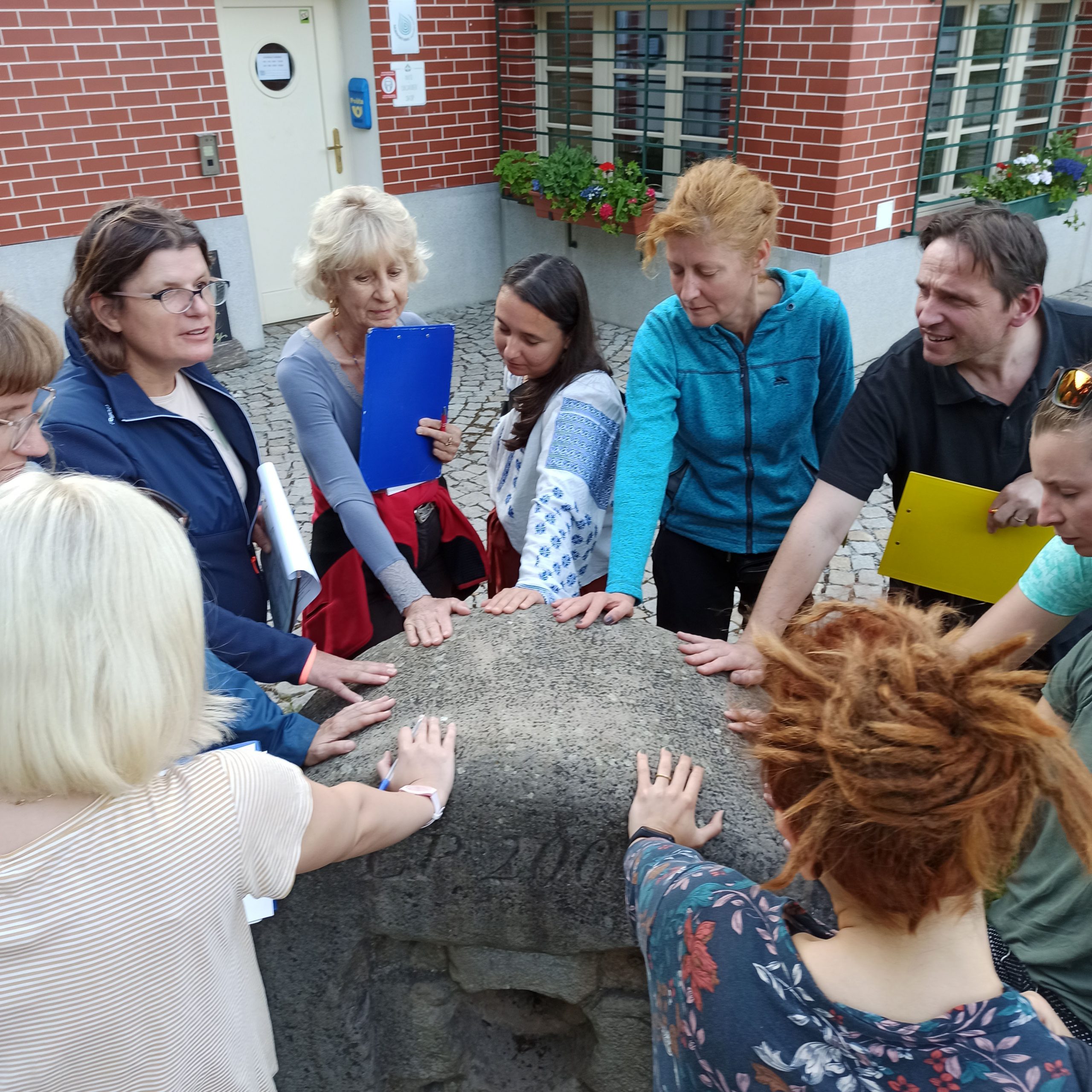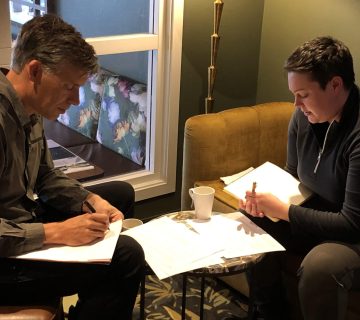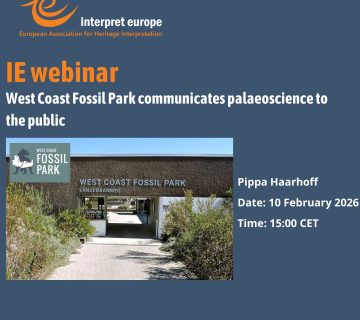With support from the International Visegrad Fund, the second edition of the Interpret Visegrad initiative is running in 2021-2022.
As a result of the Interpret Visegrad initiative, a continued cooperation between IE member institutions and individuals working in the field of cultural and natural heritage management and heritage interpretation from V4 countries and beyond, a series of IE courses are running in 2021-2022, which has been made possible through a successful grant application to the International Visegrad Fund.
Project partners – The Association of Cultural Heritage Managers from Hungary, the Czech Institute for Heritage Interpretation, the Polish Malopolska Institute of Culture and the The National Trust of Slovakia – previously implemented a similar project in 2018-2019, in which the focus was on IE’s Certified Interpretive Writer (CIW) and Certified Interpretive Trainer (CIT) courses. The choice was made to fill a gap that was equally present in all the countries.
The second round will be quite different in many aspects. It is even more ambitious, as it includes a Certified Interpretive Guide (CIG) course, a trainer course and CIG upgrade, thus these two would produce trainers who can adapt the CIG course material to their native languages, and deliver courses for domestic audiences. But beyond that, a Certified Interpretive Planner (CIP) course will also take place under the project.
Another difference is, that the project will also take advantage of trainer capacities from the Visegrad countries as much as possible. It also means that while Hungary and Slovakia are somewhat lagging behind in terms of the number of Certified Interpretive Guides and Trainers compared to the Czech Republic and Poland, we are able to turn this ‘disadvantage’ into something positive, and by inviting trainers from the partners, we add a layer in regional cooperation. All in all, over 60 new trainees will participate, the majority of them becoming certified. And this also means that after the project at least 12 new trainers will be able to actively develop the training network, and spread the message of heritage interpretation via our CIG courses. The good news is that the Certified Interpretive Trainer and CIG upgrade courses can still invite a few participants beyond the partnering project countries.
| If you would like to join the course for Certified Interpretive Trainers, or the CIG/CIW upgrades, save the dates between 29 November and 2 December 2021. Places are limited so act soon.
For further information please contact Valya Stergioti, IE’s Training Coordinator, at valya.stergioti@interpret-europe.net and Tomasz Adamski at adamski@mik.krakow.pl, as the CIT training is taking place in Poland, hosted by the Malopolska Institute of Culture. For further information about the course, please also check out the IE webpage on becoming a trainer: https://interpret-europe.net/training/becoming-an-ie-trainer/ If you are interested in participating in the Certified Interpretive Planner course, and you are a resident of any of the V4 countries, with some previous planning experience, please contact Zsuzsa Tolnay at tolnayzs@yahoo.com. The course is planned to take place at the end of March 2022 in Hungary. Note: Possible COVID restrictions might result in changes to the dates. |
The project is part of a greater agenda to make a paradigm shift in Central and Eastern European countries related to heritage interpretation methodology that Interpret Europe stands for and to further expand cooperation between members of the IE network from the participating countries and beyond (Slovenia in 2018 and Romania in 2021).
As the hospitality sector took one of the biggest hits during the covid-19 pandemic, after the restart of tourism it is increasingly important to be equipped with the type of specific knowledge IE courses offer and be able to give service and experiences to visitors that are one-of-a-kind. These courses provide a perfect opportunity for forward-thinking participants who want to invest in themselves and their professional future.
Zsuzsa Tolnay is a nature conservationist and World Heritage expert. Deep-rooted motivation led her into the world of heritage interpretation, covering all areas of it, from design through training to implementation. Throughout her career, she has also worked on management plans, strategic documents, and community development programmes. Zsuzsa can be contacted at: tolnayzs@yahoo.com.
Árpád Bőczén is an architect, a builder and participant in collaborations not only between buildings, but also between communities, systems related to music and other cultural heritage, and especially between people. He is the IE Country Coordinator Hungary. Árpád can be contacted at: arpad.boczen@interpret-europe.net.
To cite this article: Tolnay, Zsuzsa & Bőczén, Árpád (2021) ‘Development of heritage interpretation skills within the V4 countries’ in Interpret Europe Newsletter 3-2021, 11-12.
Available online: https://interpret-europe.net/wp-content/uploads/2021/10/Newsletter-Autumn-2021.pdf




